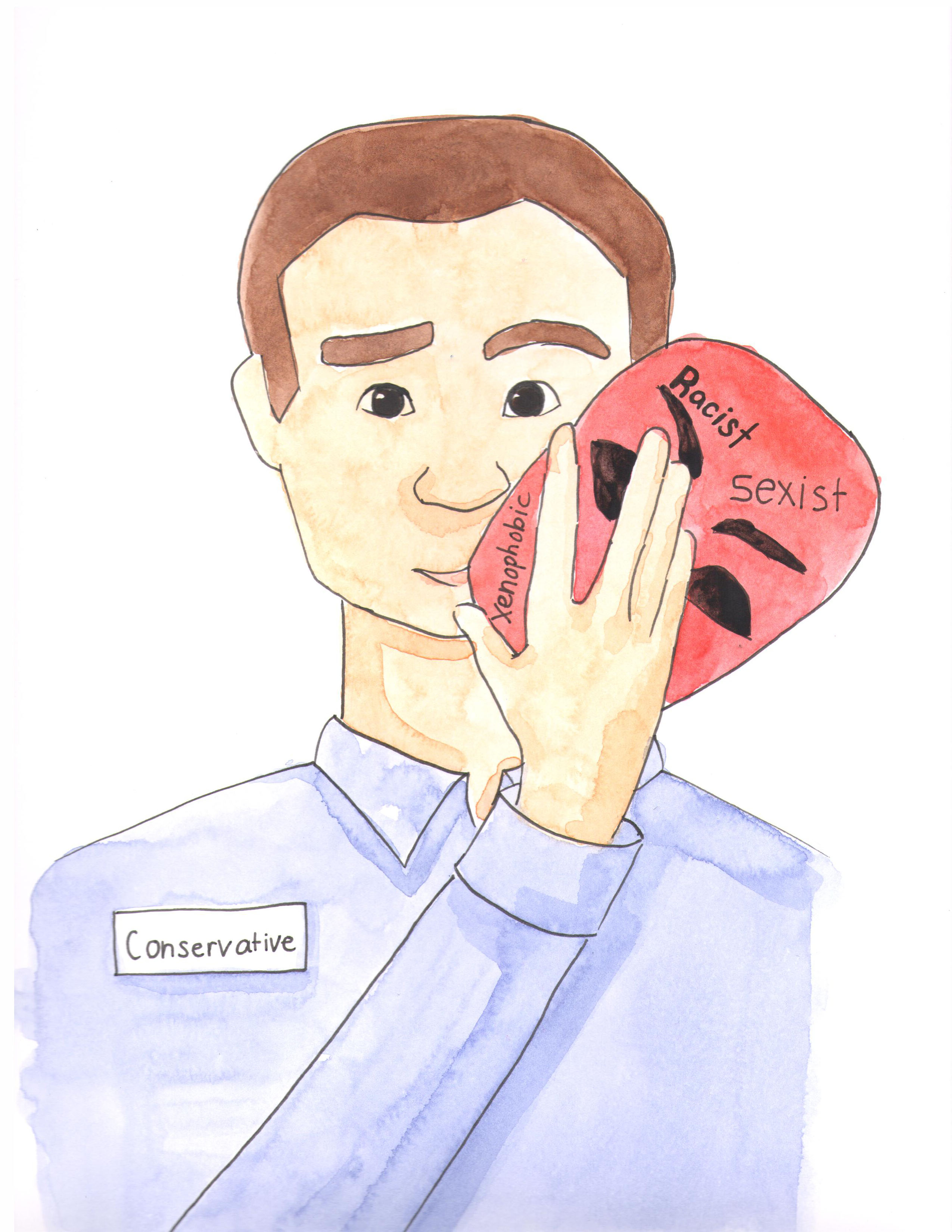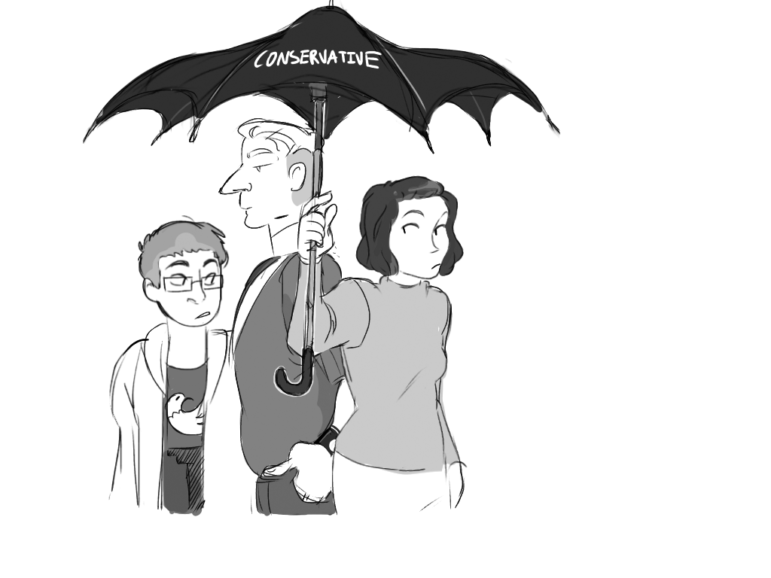
In the Bay Area, there are very few self-proclaimed conservatives under the age of 40. Indeed, I as a conservative know very few. There certainly is, however, no lack of labels that have been attached to conservatism. Racism, sexism and xenophobia are just a few. Chances are, many at Aragon haven’t had anyone challenge these labels, making them stick all too easily. So let me share what conservatism really is about and why I pride myself in being one. To be honest, no label perfectly describes my political worldview. There are conservatives, liberals, libertarians, socialists and a whole mix in between. Most of my views would be seen as conservative. Although I would agree with Ronald Reagan in saying, “the very heart and soul of conservatism is libertarianism,” many seem to neglect this. In my opinion, both conservatism and libertarianism can be boiled down to a simple philosophy of small government, extensive freedom and blind justice. I believe that under these conditions, people have the greatest potential to live happily, comfortably and peacefully.
Conservatives certainly receive the most opposition on social issues. This is where my libertarian side comes into play. I believe that although I’m fundamentally against abortion (in most cases), it’s not within the government’s role to regulate the peaceful actions of its citizens. And while there are certainly arguments about whether or not abortion is murder, that fundamental belief provides a necessary baseline for libertarianism. Whether I agree with an action or not, so long as it does not negatively impact and bring harm to others, then I cannot in good faith argue that the government has a right to regulate that action. The great thing about this definition is that it can be applied broadly while still agreeing with the fundamental principles of libertarianism.
This correlates directly with my conservative outlook on economics. While I do believe that the government has a legitimate function providing for the national defense, administering justice, educating the youth and creating and maintaining infrastructure, I also believe that function can be adequately carried out without imposing extensive regulation, taxation or impositions on freedom. Ultimately, I believe that taxation is an imposition on freedom. People cannot opt out of paying taxes if they wish to remain a United States citizen. Therefore, the best form of taxation is that which is only levied with appropriate representation and in a form that ensures the taxpayer retains as much of their money as possible, as to ensure freedom is maximized.

You might be thinking, well, I don’t consider myself a conservative or libertarian, but these principles sound nothing like what I always thought conservatives stand for. The most likely case is what you have been thinking of, in my opinion, is best described as neo-conservatives. Few accept this label, but most Republicans in Washington are exactly that. Neo-conservatives may fit the mold of conservatives when it comes to their view of taxation, but otherwise, they are nothing like us. They believe in nation building and interference in the affairs of other nations, whereas a traditional conservative would believe in upholding our national interests while refraining from tampering in countries we have no business being in. This of course does not mean we do not believe in standing by our allies in times of crisis. However, it certainly does mean that we are wholly against acting in an imperialistic way and imposing our world view on other nations. Neo-conservatives also commonly believe it is within the role of the government to impose subjective morality into law — banning things like abortion, gay marriage and so on. Principled conservatives on the other hand, would tend to disagree with those actions but would also believe it is not their right to interfere with an individual’s freedom to do so.
This, my friends, is conservatism. It comes in many forms and there is no one platform that we follow. Rather, we hold ourselves to the core principles that I have laid out and live our lives as we believe is good and moral, without imposing that will on others. We often get confused for the religious right or neo-conservatives (both of which are distortions of true conservatism). And while many of us are religious, we don’t believe there is anything moral about using the government to forcefully impose our world view. So, when there are prejudicial labels thrown at conservatives, blame the individuals — not the ideology. We cherish our own freedom and want everyone, regardless of their beliefs, to enjoy that very same freedom.



